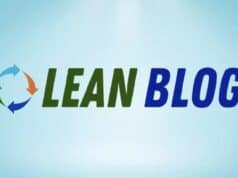by Mike Lopez
A perfect example of a locally optimized system. According to an article in Businesweek, car rental firms have benefited from a “subsidy” from car makers eager to keep workers turning wrenches.
For years, consumers and rental firms alike have benefited from the fact that Detroit has been outproducing demand. To keep plants humming, and to keep busy the union workers they were contractually forbidden from firing, Detroit's Big Three offered huge rebates and 0% financing or sold discounted, bare-bones models to rental fleets.
The article reveals that as Ford and GM close plants to meet demand, the prices charged to rental car companies have been rising to meet market rates. Not only are rental companies paying more for cars, the Big Three no longer have to buy back the cars to entice the rental companies to buy them in the first place. As a result, more of these rental companies are having to deal with selling their retired fleet vehicles. This development is actually benefiting Ford, GM, and Chrysler, who are seeing increased purchasing of popular add-ons to help make the cars more attractive in the after-market.
As the equilibrium between supply and demand is achieved, car rental rates to consumers have been rising.
So far this year, the rental agencies have jacked up the average price at the counter for a midsize car such as the Taurus by more than $7, to $59 a day…. That follows a jump of just $2 a day during all of last year.
Amazing how balancing production to meet demand automatically turns unprofitable business into profitable business.
What do you think? Please scroll down (or click) to post a comment. Or please share the post with your thoughts on LinkedIn – and follow me or connect with me there.
Did you like this post? Make sure you don't miss a post or podcast — Subscribe to get notified about posts via email daily or weekly.
Check out my latest book, The Mistakes That Make Us: Cultivating a Culture of Learning and Innovation:








I bet we’ll see a bunch of weirdly optioned vehicles from Chrysler in rental fleets!!! (See the article from 11/27)
Another thought — when automakers perfectly match production to demand, we’ll also see the end of 0% financing, $5000 cash back, and other incentives they use to push product on customers.
I don’t think we’ll see the end of incentives. If they don’t overproduce the cars and then push them, they will have periods of excess capacity and will have to push that unused capacity.
Mark, I think you are right. If everyone perfectly matched demand, there would be no sales discounting. The car manufacturers would have no reason to. They also would not want to destroy the sales equilibrium, which would then lead to variation in manufacturing effort.